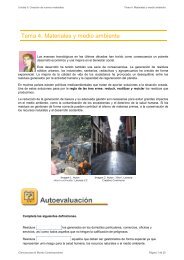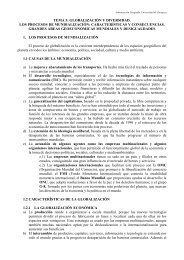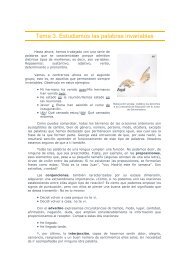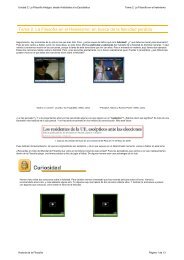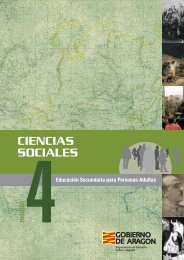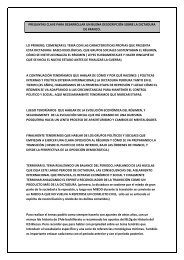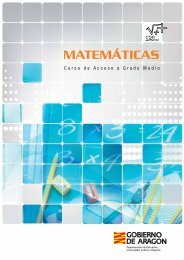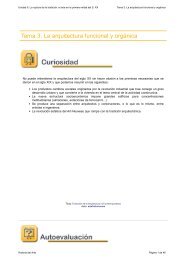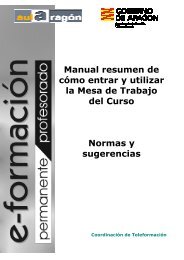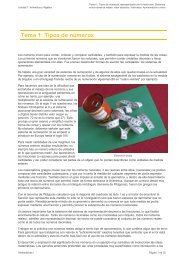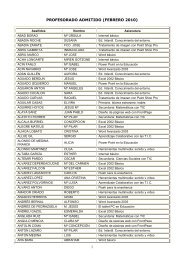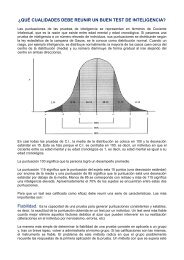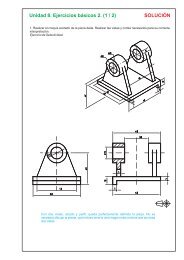A / An Adjetivos posesivos - aulAragon
A / An Adjetivos posesivos - aulAragon
A / An Adjetivos posesivos - aulAragon
You also want an ePaper? Increase the reach of your titles
YUMPU automatically turns print PDFs into web optimized ePapers that Google loves.
1º INGLÉS<br />
Contenidos gramaticales<br />
Forma negativa<br />
FORMA PLENA<br />
I have not got<br />
You have not got<br />
He has not got<br />
She has not got<br />
It has not got<br />
We have not got<br />
You have not got<br />
They have not got<br />
FORMA CONTRACTA<br />
I haven't got<br />
You haven't got<br />
He hasn't got<br />
She hasn't got<br />
It hasn't got<br />
We haven't got<br />
You haven't got<br />
They haven't got<br />
Forma interrogativa<br />
Have I got?<br />
Have you got?<br />
Has he got?<br />
Has she got?<br />
Has it got?<br />
Have we got?<br />
Have you got?<br />
Have they got?<br />
Nombres contables e incontables<br />
Nombres contables<br />
Se consideran como unidades que se pueden contar: one apple, two apples, three<br />
apples...<br />
Tienen forma singular o plural.<br />
Con el SINGULAR se usa a / an: a table, an apple.<br />
Con el PLURAL se usa some (unos o algunos en castellano): some apples, some<br />
books.<br />
Nombres incontables<br />
No se pueden contar: water, bread, money...<br />
Sólo tienen SINGULAR.<br />
Suelen ir precedidos de some (con el significado 'de algo de' en castellano): There is<br />
some water in the glass.<br />
Se pueden cuantificar estos nombres utilizando otras palabras: a glass of water, a loaf<br />
of bread...<br />
Educación Secundaria para Personas Adultas Página 8 de 9



